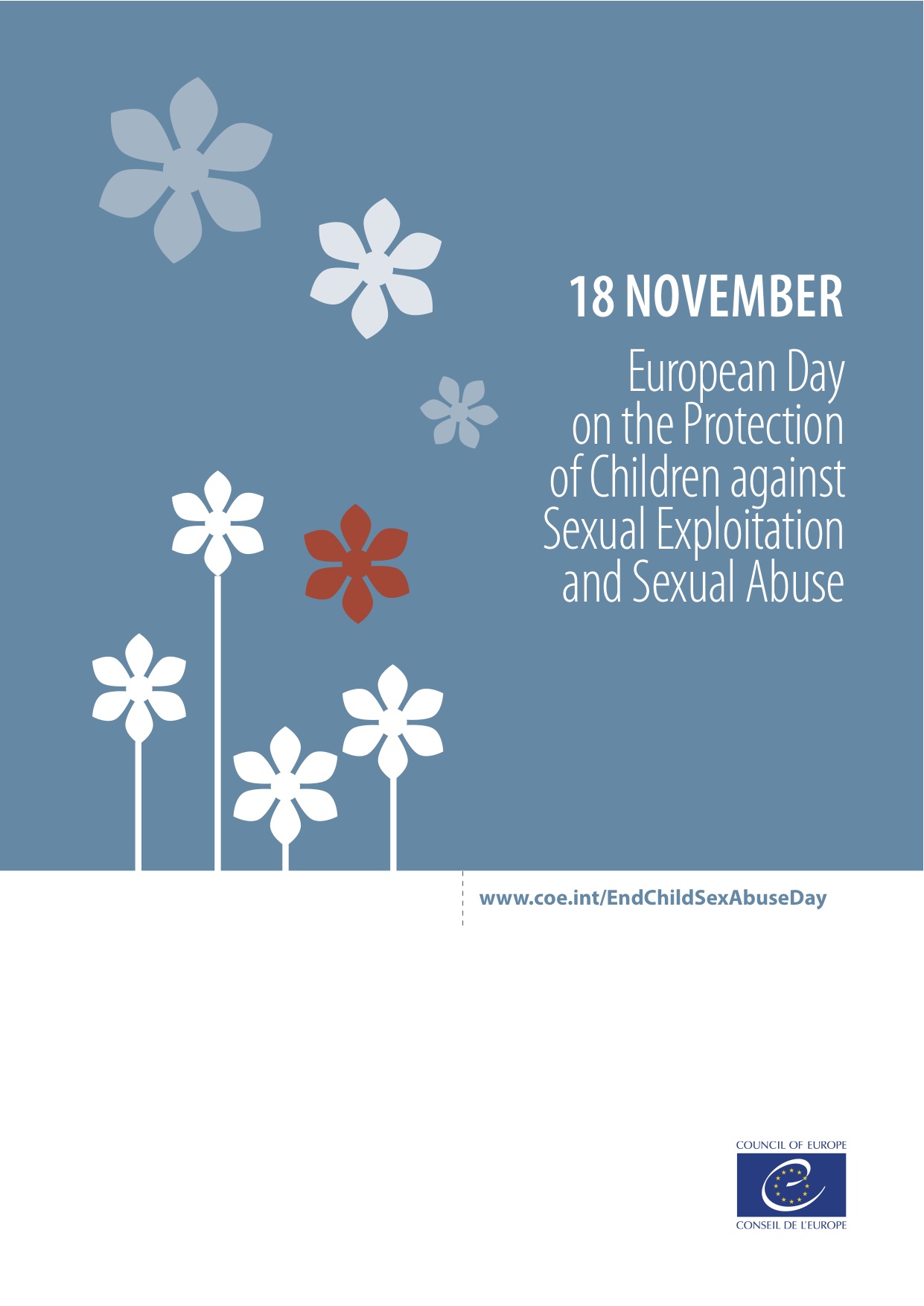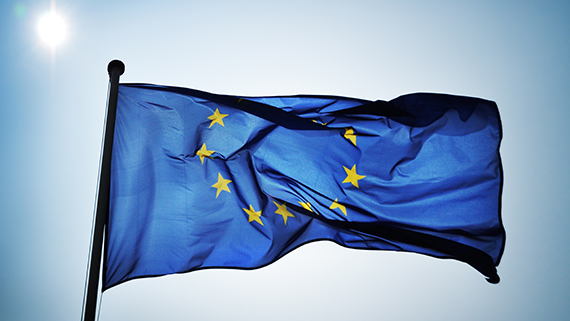18 November: European Day on the Protection of Children against Sexual Exploitation and Sexual Abuse - 2022 Edition
Getting it right: ensuring child-friendly justice through Barnahus structures in Europe
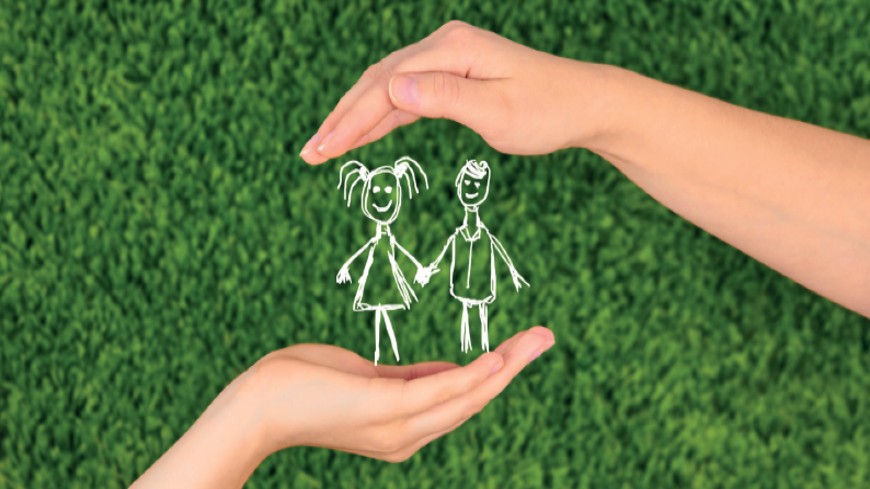
The 2022 edition of the European Day focuses on “Getting it right: ensuring child-friendly justice through Barnahus structures in Europe”. The Council of Europe partners with a wide audience to celebrate the European Day including member states, civil society organisations and national parliaments. This webpage provides access to the various initiatives organised by these partners (displayed below under Activities) allowing all to share their products to generate good practices.
Barnahus (Children’s House) is the leading European child-friendly multidisciplinary and interagency (MDIA) response model for child sexual abuse. Its unique approach brings together all relevant services under one roof, to avoid re-victimisation of the child during investigation and court proceedings and provide every child with a coordinated and effective response. The core purpose of Barnahus is to coordinate parallel criminal and child welfare investigations and help produce valid evidence for judicial proceedings by eliciting the child’s disclosure. The child victims and witnesses of violence also receive support and assistance, including medical evaluation and treatment, in a safe environment for children.
 Share your activities and initiatives!
Share your activities and initiatives!
Please inform us if you organise an event by completing an online form. Your activities or initiatives will be promoted.
MATERIALS
 Our tools
Our tools
The Council of Europe is promoting the Barnahus model for a number of years now. In its 2015 implementation report dedicated to the protection of children against sexual abuse in the circle of trust, the Committee of the Parties to the Convention on the protection of children against sexual exploitation and sexual abuse (Lanzarote Convention) identified the Icelandic Barnahus model as a promising practice example for a child-friendly multidisciplinary and interagency (MDIA) response.

 Our awareness-raising and communication tools and resources
Our awareness-raising and communication tools and resources
Since 2015, the Council of Europe has developed many different awareness-raising and communication tools and resources:
 Our co-operation projects
Our co-operation projects
Over the past years, the Council of Europe has also developed several technical co-operation projects to assist member states in setting up Barnahus structures, in particular in Slovenia where the first Barnahus was inaugurated in May 2022. Other projects are in the doing in Finland, Ireland and Spain:
- Barnahus Slovenia (completed)
- Barnahus Finland (underway)
- Barnahus Spain (underway)
- Barnahus Ireland (underway)
ACTIVITIES FOR THE EUROPEAN DAY
 In Council of Europe member states
In Council of Europe member states

Planning Familial 67, Centre d'Information sur le Droit des Femmes et des Familles du Bas-Rhin, Thémis 67 and Viaduq 67
Planning Familial 67, the Centre d'Information sur le Droit des Femmes et des Familles du Bas-Rhin (Bas-Rhin Women's and Family Rights Information Center), Thémis 67 and Viaduq 67 co-organised on 18 November 2022 a day of meetings “Fight against sexual violence against children: detect, accompany, prevent” in the form of several round tables: first on an inventory in Europe and in France on the protection of children against sexual violence, then on prevention, detection and accompaniment of the victims. The objectives of this day were to make the decision-making bodies based in Alsace aware of the Convention on the Protection of Children against Sexual Exploitation and Sexual Abuse (Lanzarote Convention) and the work of its Committee of the Parties (Lanzarote Committee), but also to participate at the local level in better protection and better support for child victims of violence.
CAMELEON
CAMELEON deployed on the occasion of the 2022 edition of the European Day a #LePartage awareness campaign with a spot and posters in the urban space to alert parents and the general public to the risks associated with exposure of minors online. While France is the 4th host country in the world of pedophile content, the association has launched a manifesto aimed at increasing the means to fight against cybercriminality.

The State Commission for investigation of cases against sexual liberty and decency against minors under the age of 15 years
The State Commission organised a debate on 18 November 2022 at the Staszic Palace in Warsaw, on the topic “Why we do not hear the voice of children with disabilities who are sexually abused? Emotional, communication and institutional barriers”. The event was held under the honorary patronage of Mrs Agata Kornhauser-Duda, the First Lady of Poland. The Polish government was represented by Mr Paweł Wdówik, the Secretary of State in the Ministry of Family and Social Policy and the Government Plenipotentiary for Disabled Persons. The aim of the debate was not only to publicise a socially significant problem, but also to develop solutions that would help protect minors with disabilities from sexual abuse. The debate was addressed primarily to people who take care of children with disabilities on a daily basis: parents, educators, teachers.
 Other partners
Other partners
 Council of Europe
Council of Europe
COMMITTEE OF MINISTERS
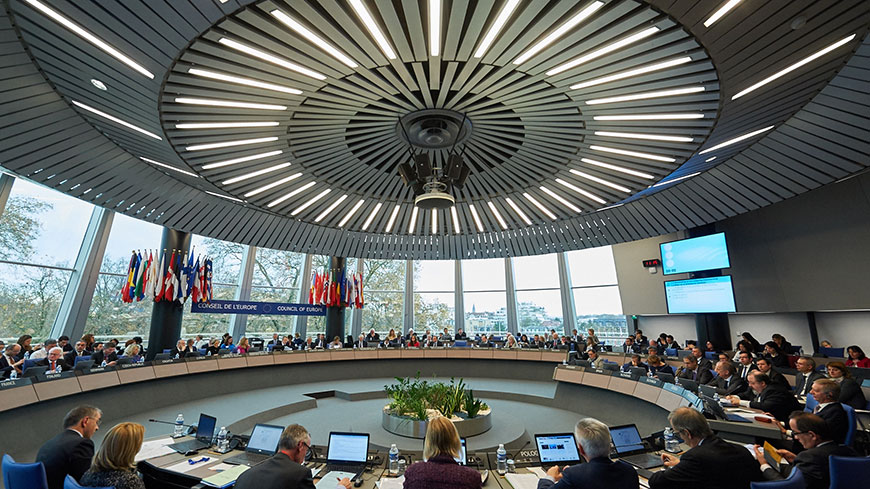
ICELANDIC PRESIDENCY OF THE COMMITTEE OF MINISTERS
High-level event “Towards Barnahus in All European States; Ensuring the rights of every child”

ICELANDIC PRESIDENCY OF THE COMMITTEE OF MINISTERS AND SECRETARY GENERAL OF THE COUNCIL OF EUROPE
Joint statement by Council of Europe Secretary General, Marija Pejčinović Burić, and Iceland’s Minister for Foreign Affairs, Þórdís Kolbrún Reykfjörð Gylfadóttir
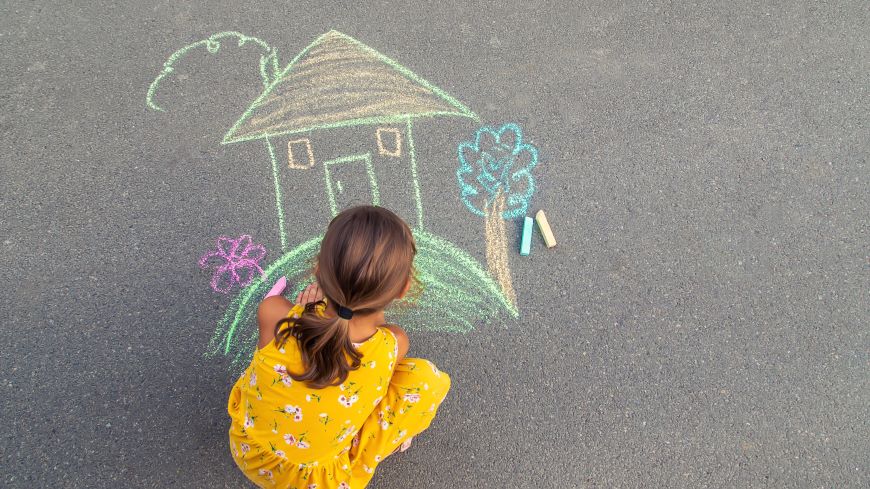
LANZAROTE COMMITTEE
Ms Maria José Castello-Branco, Vice-Chairperson of the Lanzarote Committee

The Committee of the Parties to the Convention on the protection of children against sexual exploitation and sexual abuse (Lanzarote Committee) has recognised the Barnahus model as a promising practice in its 1st implementation report in 2015 and this recognition has led to exploring the adaptation of the model by a number of Council of Europe member states (with cooperation projects in various European countries: Slovenia (Barnahus now open and functioning), Finland, Ireland, Spain). The Icelandic model of Barnahus is indeed the best response model to sexual abuse of children.
Why?
There are two ways to explain the importance of the Barnahus:
To the public decision maker, we just have to focus on the interinstitutional uniqueness of this model that brings together all services under one roof to avoid re-victimisation of the child and provide a coordinated and effective response to each child. The rationale behind it is to coordinate criminal and child protection investigations and promoting the protection and the recovery of child victims and witnesses of violence, in a safe and child-friendly environment.
But to a child, which has been victim of sexual abuse, this model can warrant respect, care and justice just because it puts the child interest in the first place and is built to be accessible, age appropriated, diligent and adapted to the needs of the child. It means that this child will be protected at the highest possible level, in a much better way than with old-school models.
Having an evolving capacity is also essential to reach all those aims and is one of the most interesting characteristics of the Barnahus.
The Barnahus model is clearly to be promoted to help protect child victims of sexual violence in the offline world. But what about the online worlds?
The Promise Barnahus Network developed a simple questionnaire at the request of the Council of Europe in the context of the End Online Child Sexual Abuse @ Europe funded by End Violence Against Children. This questionnaire was completed by Barnahus in Croatia, Finland, Iceland, Ireland, Norway, Sweden, and the UK in June 2020.
Conclusions were very interesting showing that the impact of online abuse on the child can be even more severe than offline abuse, “especially in situations in which perpetrators cannot be identified or where sexual images have been shared on social media”, that “victims of online sexual abuse often require adaptations to crisis support and therapy”, or that they “have increased feelings of guilt and shame in cases with online elements, coupled with a strong sense of loneliness and isolation”.
Please read the survey results to better understand why developing a Barnahus is also worthwhile for online sexual violence against children.
PARLIAMENTARY ASSEMBLY
Launch of the video "The Stadium"

CHILDREN'S RIGHTS DIVISION






